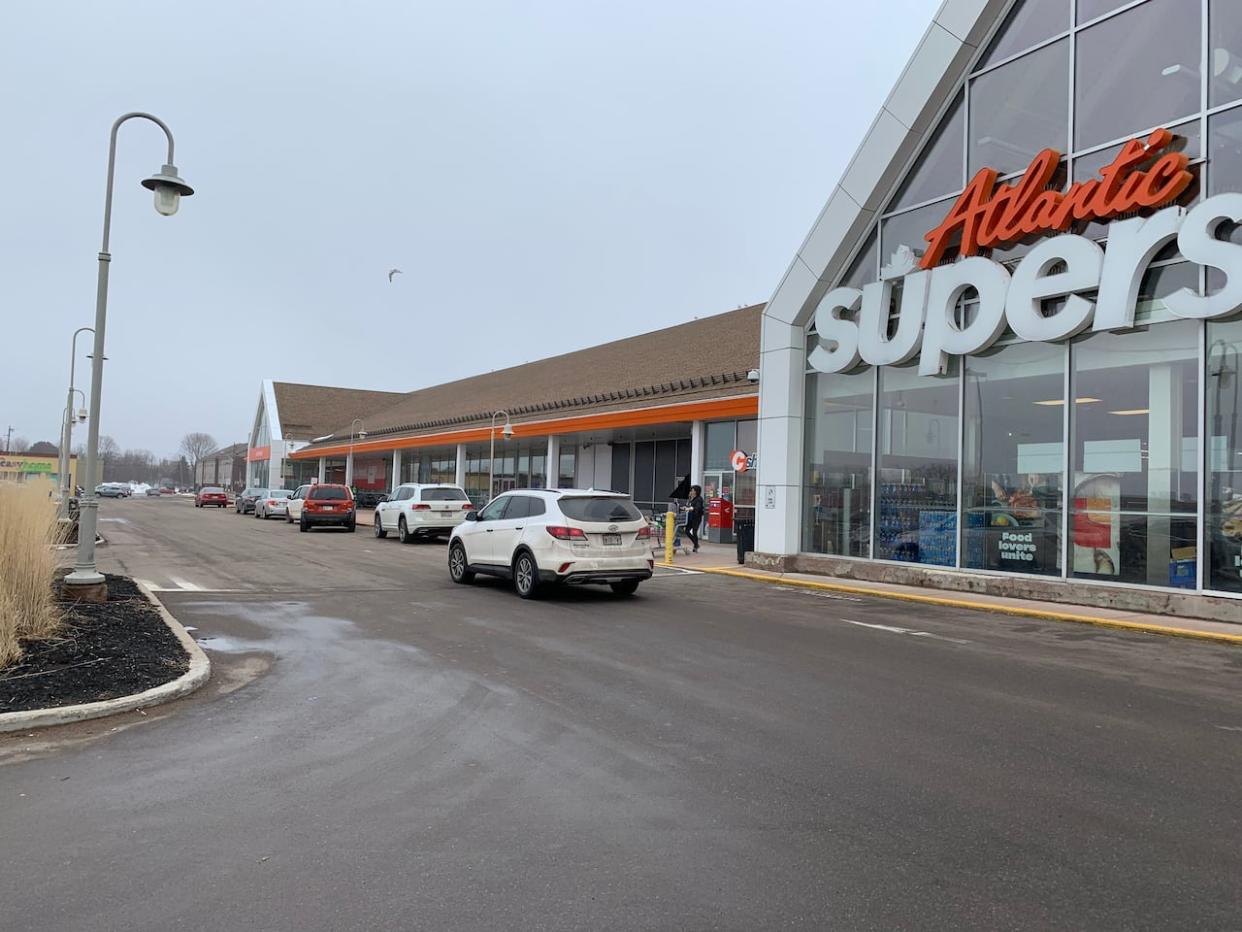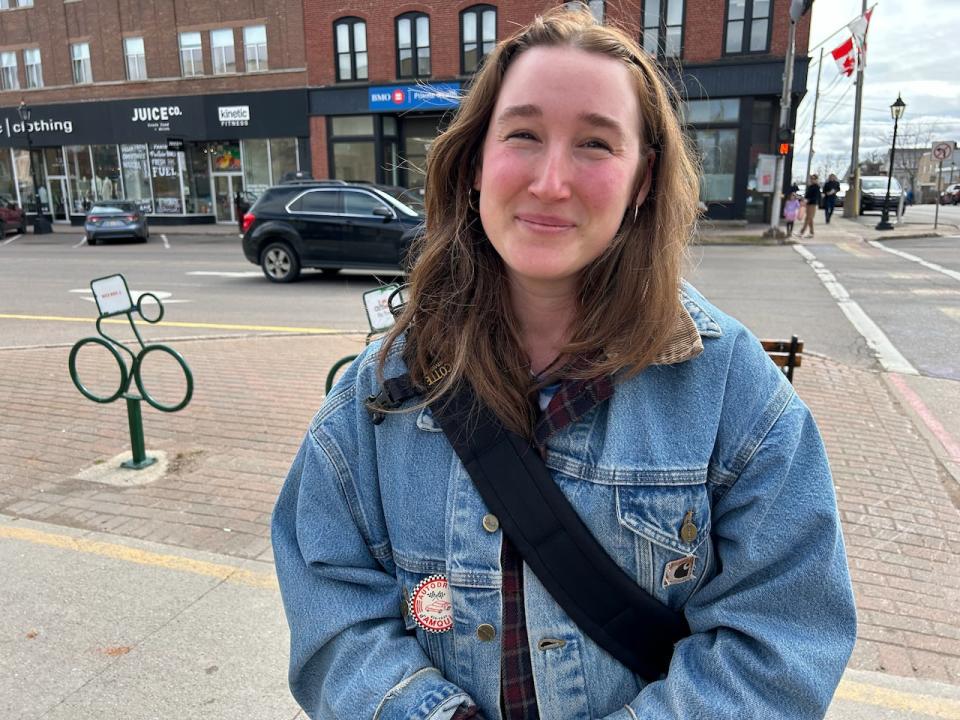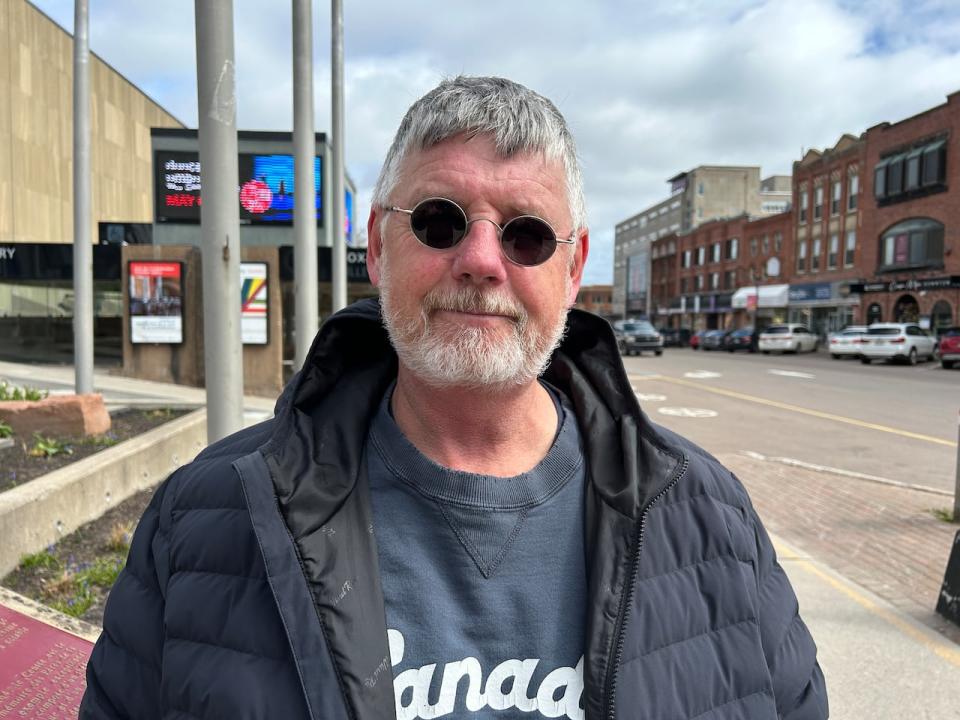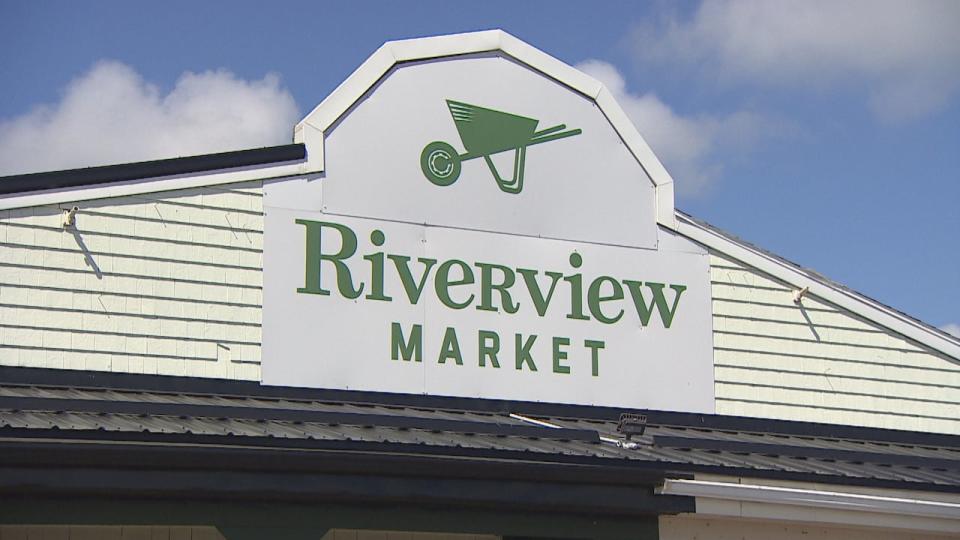Some Islanders are boycotting Loblaw — but it won't be easy

Some Prince Edward Islanders are planning to spend their money at smaller grocery stores this month.
P.E.I. residents and others across the country are boycotting Loblaw, which owns Atlantic Superstores, due to the rising cost of food.
"I think grocery prices are too high and these grocery corporations, Loblaws, they are not struggling ... they are making record profits," said Jordan Beaulieu, who is taking part in the boycott.
Loblaw Companies reported $13.58 billion in first-quarter revenue for 2024. That's a 4.5 per cent increase from a year earlier.

'These grocery corporations ... are not struggling, they are making record profits,' says Jordan Beaulieu. (Tony Davis/CBC)
"People like me, people who are middle class, lower-middle class, working class, whatever you want to call, it is hard," Beaulieu said. "We got to put food on the table, and I think it's nice to kind of put a bit of pressure on these corporations and buy from more local grocers."
While it might be difficult to avoid major grocery stores entirely, Beaulieu is excited to see what other options P.E.I. has on offer.
Other Islanders, like Derek Anthony are joining her in support of the boycott.

'They seem to have a monopoly and you are restricted on where you can go, but if I can, I'll support it,' says Derek Anthony about the Loblaw boycott. (Tony Davis/CBC)
"I agree with it 100 per cent. These corporations are basically defrauding the public for their own profit and, you now, sometimes we have to take a stand," he said. "They seem to have a monopoly and you are restricted on where you can go, but if I can, I'll support it."
Responding to the online boycott, a company spokesperson told CBC News that Loblaw is "acutely aware" that it has to win its customers' business each day.
"The last few years have been tough for Canadians, and we continue to do what we can to combat inflation at our stores," the spokesperson said in a statement sent Tuesday.
"Customers are noticing, with more visits in our stores and many commenting in the same Reddit groups that they're getting real value at our stores, often the best across the industry."
'We are so reliant on a one-stop grocer'
Riverview Country Market in Charlottetown is a family run business that opened because of issues with large grocery chains.
Trisha Viaene said her parents were growing things like garlic, but weren't getting the prices they wanted from the big grocers.

'Our vision was always to be a place where you shop at first,' says Trisha Viaene, whose family runs the Riverview Market in Charlottetown. (Shane Hennessey/CBC)
"They like to mistreat the producers, the farmers," she said. "We had to switch what our farming model was and they weren't going to give us what we needed and they could get competing prices from producers in China."
Viaene has been boycotting Loblaws since April, but admits it's hard. She's had to stop in for some items here and there.
"What makes it hard is that we are so reliant on a one-stop grocer, something we have tried to do at Riverview, but we are really small," she said.
Viaene thinks more and more people are shifting to local shopping.
"We really could rally together and eliminate these big chain shopping stores," she said. "People have been choosing to shop [locally] for the last 10 years, at least."
List of local options
Tina Vanderzwagg is hoping to make the boycott a little easier on Islanders. She's putting together a list of local butchers and producers where people can get their food directly.
"I think the cost of groceries and inflation has got so high the grocery stores are capitalizing on that gain," Vanderzwagg said.
She said it's not just the price of items going up, but the size and volume of products shrinking.
"All these small businesses on P.E.I. just need the support that the grocery stores don't need," she said. "I really want to compile a list of everything that P.E.I. has to offer in terms of food and help each other out."
Vanderzwagg said she refuses to pay prices like "$24 for four ... chicken breasts" at a large grocery store.
"I encourage other people to boycott," she said.
Her list of local products will be broken down by county. She plans to publish it online for everyone to see.

